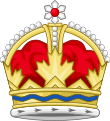 |
|---|
Local government in Canada can be defined as all elected local authorities which are legally empowered to make decisions on behalf of its electors, excluding the federal government, provincial and territorial governments, and First Nations, Métis and Inuit governments. This can include municipalities, school boards, health authorities, and so on.[1][2]
The most prominent form of local government in Canada is municipal government, which is a local council authority which provides local services, facilities, safety and infrastructure for communities.[3][4] Municipal governments are local general-purpose authorities which provide services to all residents within a defined geographic area called a municipality.
Canada has three orders of government, federal, provincial/territorial and Indigenous. Municipalities are subordinate (delegated) governance entities existing at the pleasure of provinces and territories. According to Section 92(8) of the Constitution Act, 1867, "In each Province the Legislature may exclusively make Laws in relation to... Municipal Institutions in the Province."[5] Local governments are therefore frequently referred to as "creatures of the provinces". There were about 3,700 municipal governments in Canada c. 2002.
The organisation of local government is complex. For instance, in some provinces there are several tiers of local government: regional governments, county governments and municipal governments. There are also special service districts in some unincorporated areas. Municipal local governments take various forms including cities, towns and villages. There are also innumerable specific purpose authorities. In Ontario province alone there are at least 2000 of these bodies, including 'police commissions, health units, conservation authorities, public utilities commissions, parks boards and school boards' (Tindal & Tindal 1995, p. 2). Schools are usually provided locally by school boards, with the 'school trustees' being elected.
— The Department of Infrastructure and Regional Development (Australia)[6]
- ^ "The Local Government Election Act" (PDF). The Queen's Printer. 2012. Archived from the original (PDF) on 2014-11-12. Retrieved 2013-07-23.
- ^ "Alberta.ca > Municipal Affairs > Municipalities & Communities> Education> Municipal Government for Students > Glossary". Alberta Municipal Affairs. 2012.
Municipal government is local government that is created by the province to provide essential and desired services to communities. Municipal government works within communities to represent the interests and goals of community members, provide services to citizens, and encourage them to make local decisions together."... "A First Nations reserve is not part of any municipality. The federal government takes responsibility for First Nations reserves."... "Local authorities are areas in Alberta that provide local government. A municipality is considered to be a local authority. Examples of local authorities are municipalities, improvement districts and special areas, as well as regional health authorities and school district authorities.
- ^ "Municipal Government Act". Office of the Legislative Counsel, Nova Scotia House of Assembly,Crown in right of Nova Scotia. Created . February 28, 2008. Retrieved 2009-08-22.
- ^ "Municipal government". The Canadian Encyclopedia > Government > Government, General > Municipal Government. Historica Foundation of Canada. 2009. Archived from the original on May 15, 2005. Retrieved 2009-08-22.
- ^ The Constitution Act, 1867 (U.K) Archived 2014-08-10 at the Wayback Machine. Canadian Legal Information Institute. Retrieved May 24, 2009.
- ^ Chapter 7 : Special report: local government in Canada Archived 2017-05-15 at the Wayback Machine. Government of Australia. Retrieved May 24, 2009.
© MMXXIII Rich X Search. We shall prevail. All rights reserved. Rich X Search
